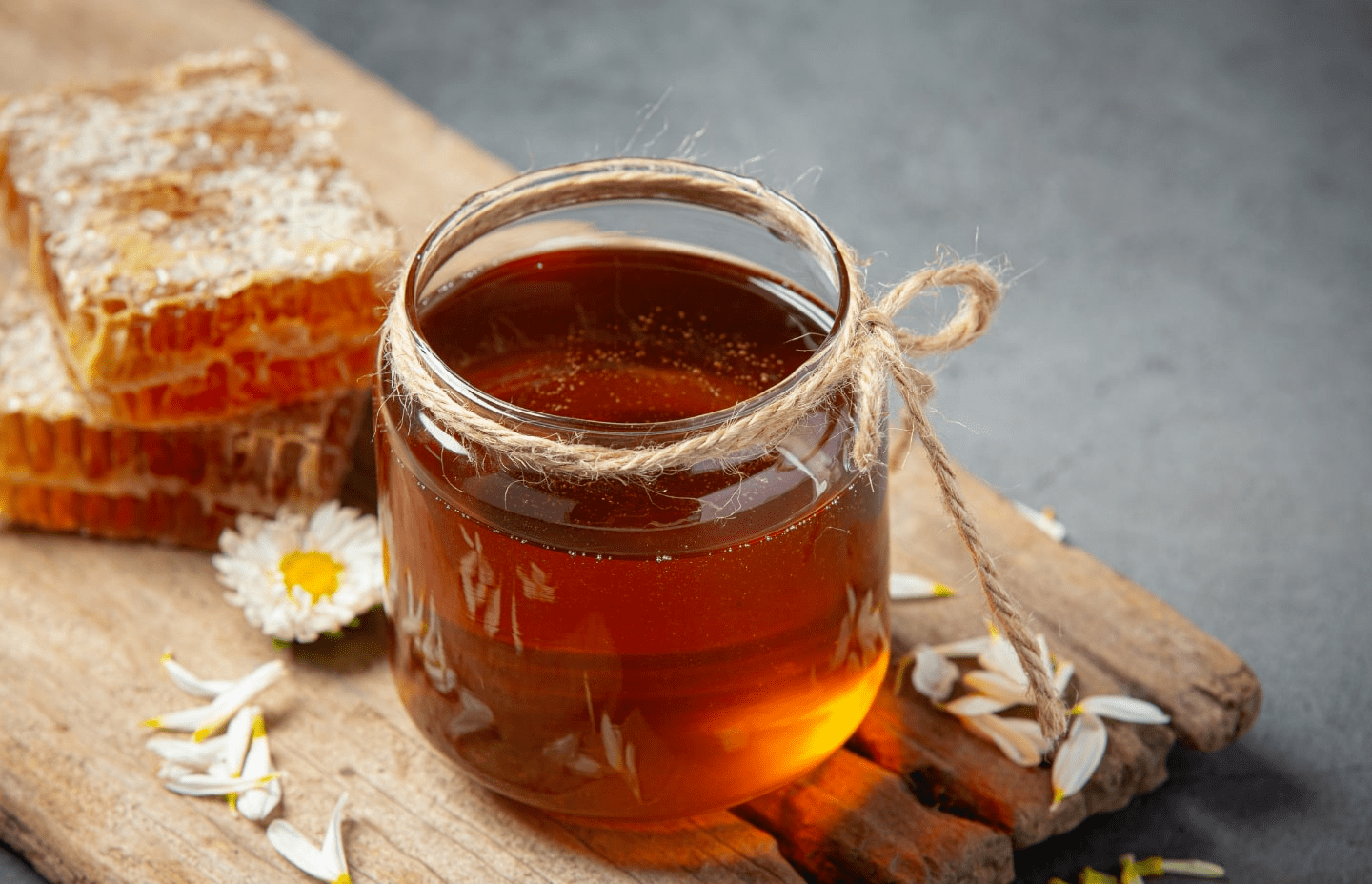Honey has been used as an alternative to sugar over centuries. But is it good for diabetics? Does honey increase blood sugar? Know More!!
You might have heard from your mother or grandmother that honey is a popular and natural household remedy for curing a cold, cough, and many other ailments. Well, it is true! Honey has been used in traditional medicine since ancient times.
Many people often advocate replacing honey with sugar. But, are you flooded with questions like, is honey good or bad for diabetes? Can diabetic patients eat honey? Or can honey increase diabetes? Let’s find out!
Honey: Nutritional Profile
Honey is a natural, sweet liquid made by bees from the nectar of flowers. USDA states that one tablespoon (21 g) of honey provides 64 calories, 17 g of carbohydrates, 0.06 g of proteins, and 0% fat. Honey also has a lower glycemic index (GI) score of 58 compared to refined sugars that have a GI score of 60.
Other components of honey are proteins, amino acids, enzymes, polyphenols, vitamins, and minerals. Honey contains three enzymes (invertase, diastase, and glucose oxidase) that help in digestion. It breaks carbohydrates into simple sugars.
Honey has nutrients like calcium, copper, iron, fluoride, magnesium, manganese, sodium, selenium, zinc, sulfur, etc. Nutrients like choline, which is essential for brain and cardiovascular functions, and acetylcholine a neurotransmitter, are also present in honey.
Advantages of Honey for Diabetes
There have been several studies conducted to investigate the impact of honey on blood glucose in sugar patients.
- One study found that long-term ingestion of honey leads to a reduction in fasting serum glucose, HbA1C, and postprandial serum glucose.
- Another study found that anti-diabetic medication (metformin, glibenclamide), when used in combination with honey, lowers blood glucose significantly in diabetic rats.
When honey is dissolved in water, it produces hydrogen peroxide (H2O2), which stimulates beta-cells to secrete insulin and causes the hypoglycaemic effect in diabetics.
NOTE: However, there is a need for more studies to find the potential effects of honey on diabetics.
Ways to Consume Honey For Diabetes
Honey is a healthier alternative to refined sugars. Raw honey (sugar-free honey) is a better and nutritious option than processed honey for diabetics. Diabetics should keep a check on their blood sugar, considering the sugar content of honey.
Some diabetic-friendly recipes are:
- ½ teaspoon honey with 1 tablespoon of plain yogurt.
- 1 teaspoon honey and 1 teaspoon of ground cinnamon in 250 ml of boiling water.
- 1 teaspoon honey mixed with 3 tablespoons each of powdered basil, turmeric, and neem.
- Honey, ginger, and lemon tea.
How Much and How Frequently Can You Consume Honey?
Honey or honey-based preparations can be consumed twice or thrice a day. However, limit the total daily consumption to 10-12 g.
Risks of Overconsumption of Honey For Diabetes
Overconsumption of honey may increase blood sugar levels, especially in diabetics.
Curious about sweeteners for diabetes? Learn about the effects of jaggery, honey, and dark chocolate on blood sugar management
Can Diabetics Have Sweeteners? Honey, Stevia, and Jaggery—Let’s Find Out! |
| Is Jaggery Good For Diabetes |
| Is Peanut Butter Good For Diabetes |
| Is Brown Sugar Good For Diabetes |
| Is Palm Sugar Good For Diabetics |
| Is Dark Chocolate Good For Diabetes |
| Is Stevia Good For Diabetes |
Other Benefits of Honey
- Honey possesses antimicrobial and antibacterial properties that boosts immunity.
- Antifungal and antiviral properties that shield the body.
- Honey helps in wound healing.
- Honey with milk helps relieve cough in children.
- Raw honey helps reduce diarrhea.
Don’t Have Time To Read?
- Honey is a natural sweetener and a healthier alternative to refined sugars.
- It offers prominent health benefits and is an indispensable part of Ayurveda.
- People with diabetes can eat honey for its health benefits but in moderate quantities so that blood glucose levels remain in control.
- Honey can be consumed raw or can be added to lemon water for additional goodness of vitamin C along with antioxidants.
- It possesses anti-inflammatory, antioxidant, and antibacterial properties due to the presence of micronutrients and polyphenols.
AAlso Read: Neem for Diabetes
Friendly Asked Questions
Is Honey Good for Diabetes?
Honey is a healthier option for diabetics when consumed in moderation. However, you must regularly monitor your blood glucose levels.
Can Honey Increase Blood Sugar?
Honey when consumed in moderation may not spike blood glucose levels. However, overconsumption can increase blood sugar levels.
Can Type 2 Diabetics Have Honey?
Diabetics can eat honey but in moderate quantities.
Can Diabetics Drink Honey-Lemon Water?
Honey-lemon water is a healthy drink as it offers antioxidant properties and lemon is rich in vitamin C.
Can I Substitute Honey for Sugar?
Honey is not only sweeter than sugar but also has many enzymes and vitamins, making it a nutritious yet best alternative to sugar.

1 comment
[…] Also Read: Is Honey good for Diabetes […]